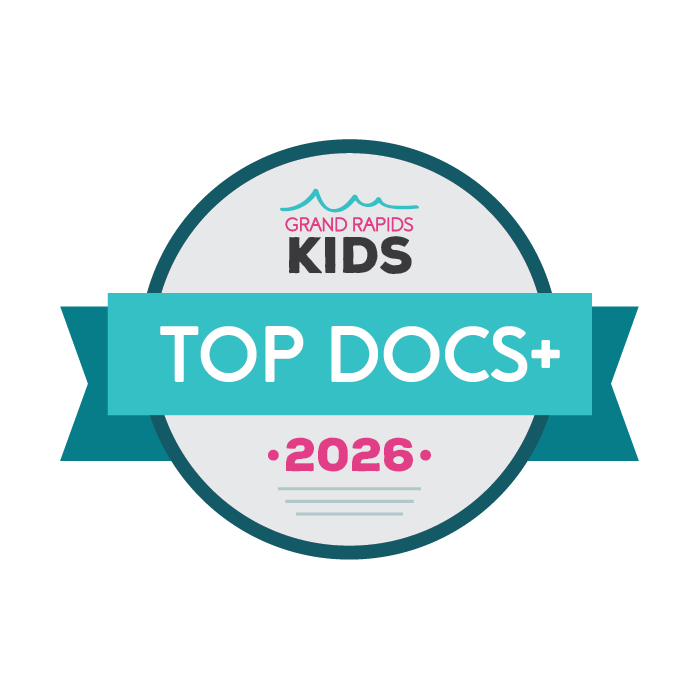Our Location
Ramblewood Offices
2855 44th Street SW
Suite 160
Grandville, MI 49418

As children begin to talk, they may say certain sounds incorrectly. Each sound has an age of acquisition and normal, developmental errors in production that are expected to resolve without treatment. Children with speech sound disorders may continue to demonstrate difficulty with production despite age expectations or may demonstrate atypical patterns of production that warrant intervention.
Children with feeding and swallowing disorders may present with a range of impairments. They may be picky eaters with limited variety of food in their diet, consume a smaller volume than would be expected, show poor growth, or have motor difficulty with the act of chewing and swallowing that compromises their safety while eating and drinking.
Children with a language disorder may have a breakdown in expressive language, receptive language, and/or social language. Expressive language disorders include difficulty using or combining words to convey a message. Receptive language disorders involve a breakdown in understanding, such as inability to follow directions or answer questions. Social language involves knowing how to interact with others and participate in two-way communication. Autism, a neurodevelopmental disorder, is an example of a diagnosis in which there is often a breakdown in expressive, receptive, and social language.
A child's “occupation” is to play, learn roles and routines in their activities of daily living (ADLs), and interact with their caregivers, family members and peers. Activities of daily living include daily routines such as self care (getting dressed, brushing teeth, etc.). In order to get to the point of participating in activities of daily living, children follow developmental patterns that support the skills for such tasks, such as crawling, sitting, walking, fine motor skills, and processing a variety of sensory information to interact with their environment.
Fine motor skills involve the smaller muscles of the body, such as the hands and fingers. Another important factor in the development of fine motor skills is vision. Vision and a child's fine motor skills work together to master every day activities such as writing, playing, dressing, utensil use, self-feeding, etc.
For various reasons, many children require additional assistance to meet their gross motor milestones including: rolling, sitting, crawling, standing, transitioning (moving tummy to sit, back to sit and pulling to stand), walking, running, jumping and riding a tricycle/bicycle. In physical therapy, a child's strength, flexibility, muscle tone, balance and coordination are assessed and addressed through various play activities. Additionally, a child may demonstrate gross motor impairments due to torticollis (neck tightness), as they are recovering from an orthopedic injury and from various neuromuscular and musculoskeletal conditions. Pediatric physical therapy addresses a child's impairments and activity limitations in order to help them meet age appropriate developmental milestones, improve functional mobility and enhance quality of life.
Sharing what our clients in West Michigan have to say...
Thrive accepts BCBS, BCN, Cigna, ASR, HAP PPO, Children's Special Healthcare Services (CSHCS), Molina Medicaid, Meridian Medicaid, Priority Health, Priority Health Medicaid, Michigan Medicaid, Aetna, UHC and TriCare (as a non-network provider).
Insurance coverage with pediatric therapies is not guaranteed as insurance companies will often determine that developmentally-based deficits are not medically necessary. Thrive will provide an estimate of coverage and out of pocket costs but it is the client/family's responsibility to know their insurance coverage and pay for the services not covered by the insurance plan.
Other payment options include private pay or receipt of a superbill to submit for reimbursement under out-of-network coverage.
Please call or email us to discuss your concerns and determine the next steps.
A physician referral and a copy of your insurance card are required to schedule an initial evaluation.
1-616-379-9887
1-616-253-6061
Get advice from one of our experienced pediatric therapists to support and advance your child's skills at home
Learn More